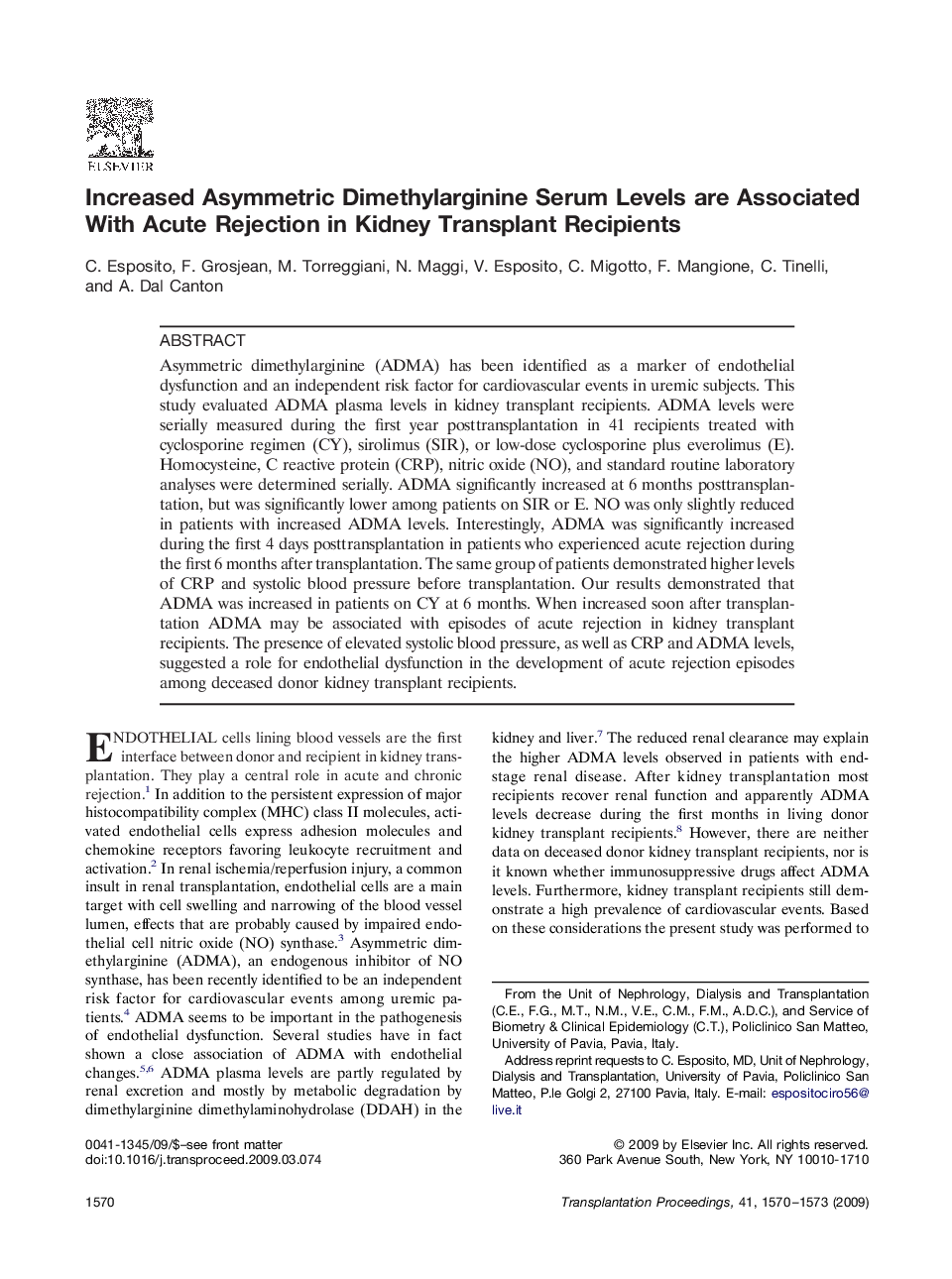| Article ID | Journal | Published Year | Pages | File Type |
|---|---|---|---|---|
| 4259239 | Transplantation Proceedings | 2009 | 4 Pages |
Asymmetric dimethylarginine (ADMA) has been identified as a marker of endothelial dysfunction and an independent risk factor for cardiovascular events in uremic subjects. This study evaluated ADMA plasma levels in kidney transplant recipients. ADMA levels were serially measured during the first year posttransplantation in 41 recipients treated with cyclosporine regimen (CY), sirolimus (SIR), or low-dose cyclosporine plus everolimus (E). Homocysteine, C reactive protein (CRP), nitric oxide (NO), and standard routine laboratory analyses were determined serially. ADMA significantly increased at 6 months posttransplantation, but was significantly lower among patients on SIR or E. NO was only slightly reduced in patients with increased ADMA levels. Interestingly, ADMA was significantly increased during the first 4 days posttransplantation in patients who experienced acute rejection during the first 6 months after transplantation. The same group of patients demonstrated higher levels of CRP and systolic blood pressure before transplantation. Our results demonstrated that ADMA was increased in patients on CY at 6 months. When increased soon after transplantation ADMA may be associated with episodes of acute rejection in kidney transplant recipients. The presence of elevated systolic blood pressure, as well as CRP and ADMA levels, suggested a role for endothelial dysfunction in the development of acute rejection episodes among deceased donor kidney transplant recipients.
